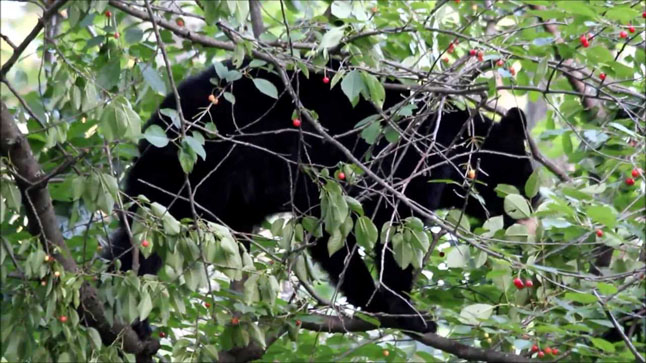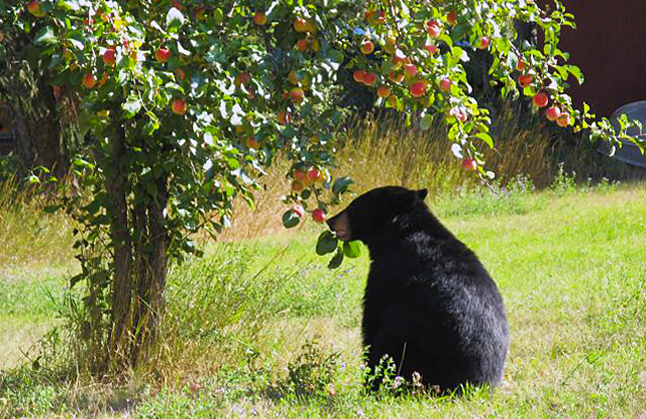
By David F. Rooney
With 67 in-town bear sightings so far this year, up from 41 last year, 2014 is bound to be a banner year for human-bear conflicts, says WildSafeBC coordinator Sue Davies.
The increase is due, in part, to the failure of the berry crop. The other part of the equation is the failure of fruit tree owners to harvest their crops and some homeowners to secure their garbage.
That brings the bears into people’s yards and, in at least one instance, right into a home.
That July 4 incident, which Davies said happened outside the city boundaries, ended when the homeowner took a shot at the animal. He might have hit it, in which case there is a wounded bear wandering around in the bush.
Davies said in an interview that Conservation Officers have twice attempted to trap a nuisance bear but have been unsuccessful. If trapped the animal will likely be killed.
“For a week or two there, the phone was going non-stop with people complaining that there was a bear in their cherry tree,” she said. “I had to keep telling people over and over, the bear is there because the fruit is there. If you don’t want the bear, harvest your fruit.”
Cherry season is over but now the bounty of plums and apples are ripening fast and that will keep the bears focused on eating those fruits. Failing to deal with your fruit could have consequences beyond a hungry bear.

“We need to be more proactive about our fruit trees. Leaving food, including fruit ‘for the bears’ is actually an offence under the Wildlife Act, as well as a significant danger to people in the neighbourhood, and the ultimate cause of many instances of bears being destroyed,” Davies said in a statement released on Thursday. “Now plum and apple season is coming up fast and people need to be responsible for their fruit.”
Conservation Officers have the power to fine to those people who consistently allow wildlife access to food such as rotting fruit or garbage on their property. So far they have not issued any tickets, but the likelihood is that they will need to take some action if residents don’t look after their fruit and garbage.
If you don’t want all of your own fruit, consider taking the excess to the Community Connections Food Bank (open 8 am on Friday mornings in the basement of the Legion on Garden Street), or advertise it on the Stoke List as pick-your-own. If you are unable to harvest your tree, please call the Gleaning Project (250-837-8624) and volunteers will harvest the fruit and take it to the Food Bank for you.
WildSafeBC will be also conducting garbage tagging over the next few weeks to remind people that garbage should be kept secure from wildlife at all times and only be at the curb from 6am to midnight on the day of collection.
For more information on managing wildlife attractants please visit www.wildsafebc.com. To report wildlife sightings or conflicts with wildlife please call the RAPP line at 1-877-952 7277.



